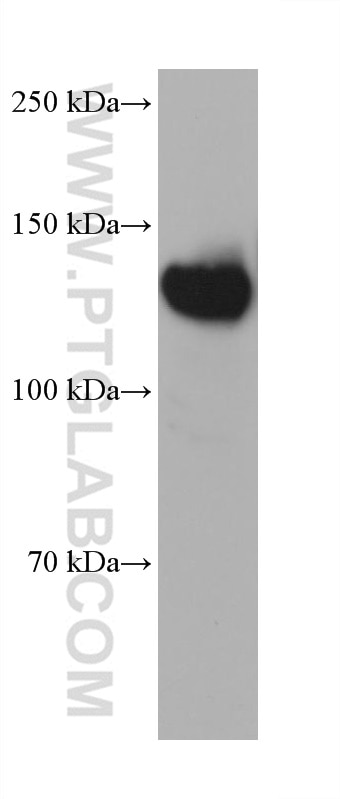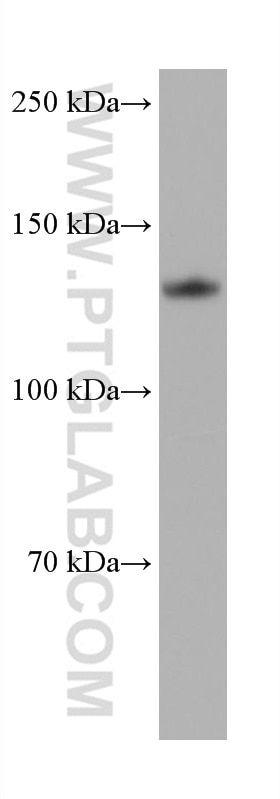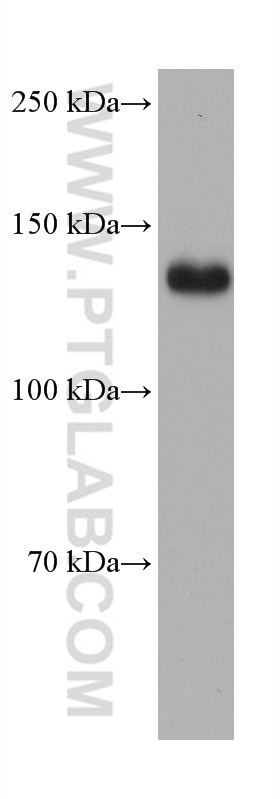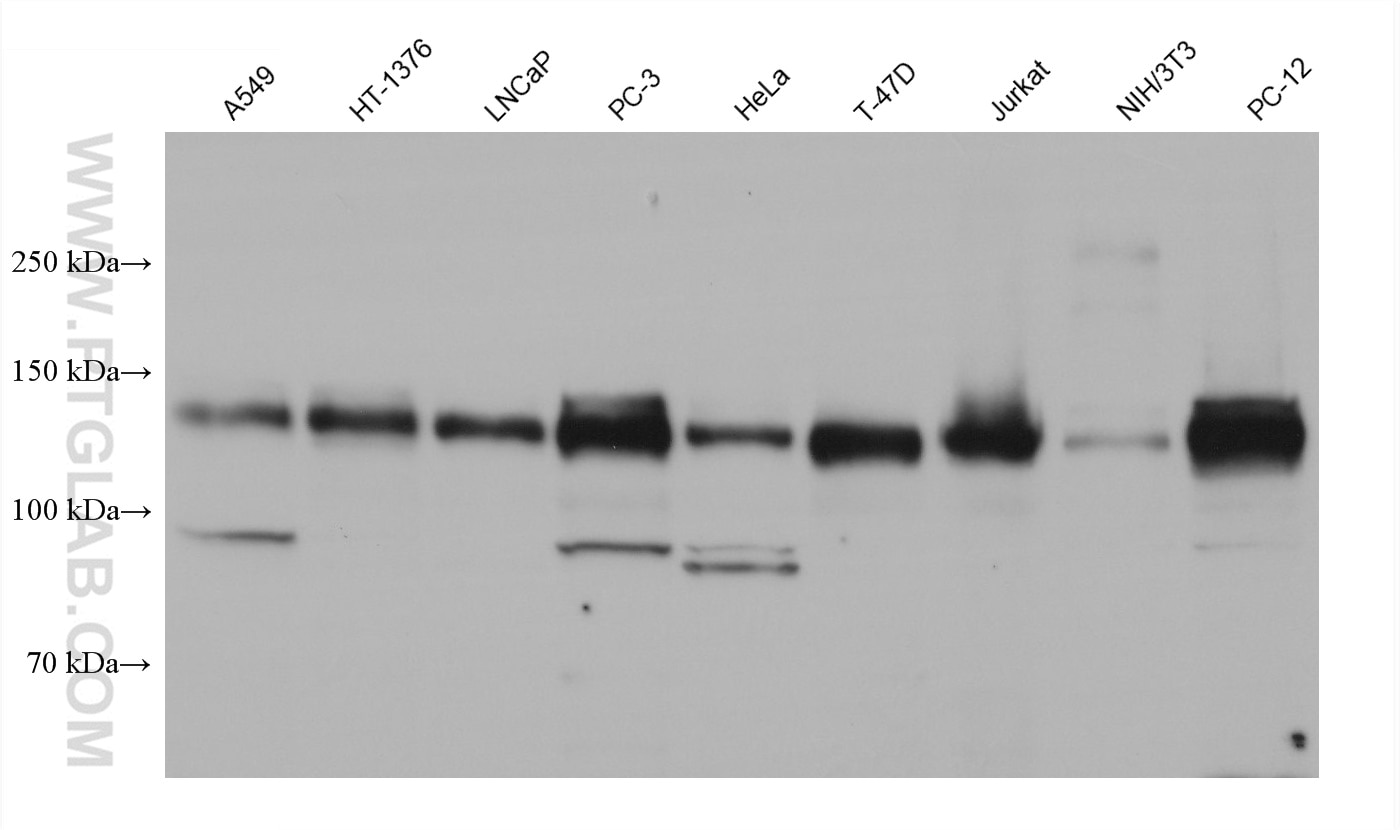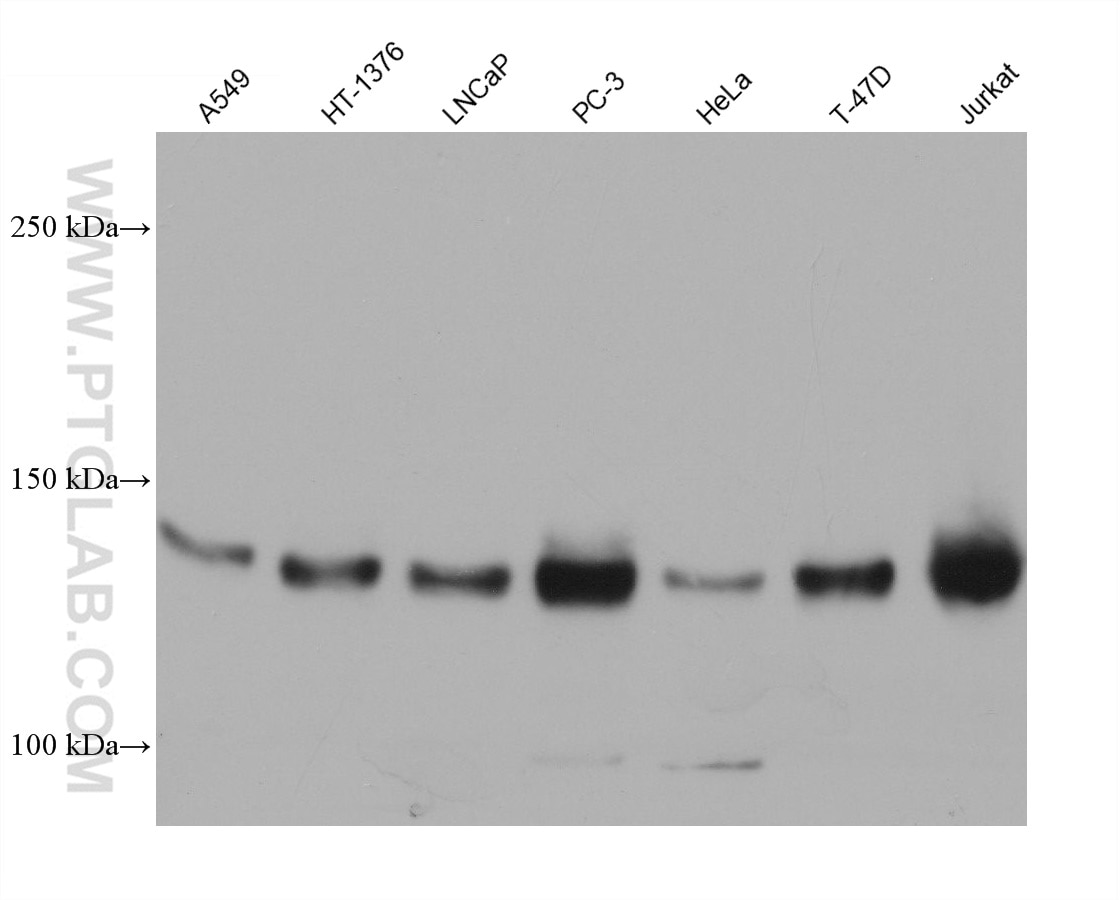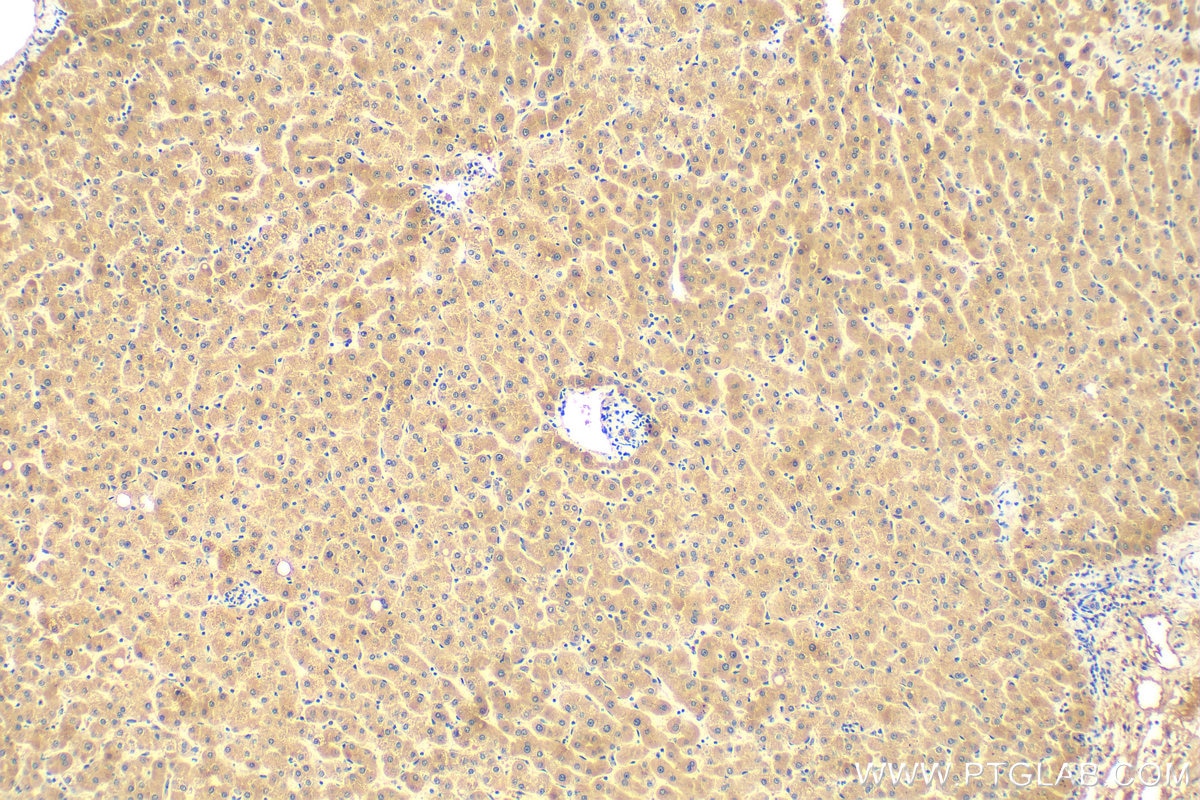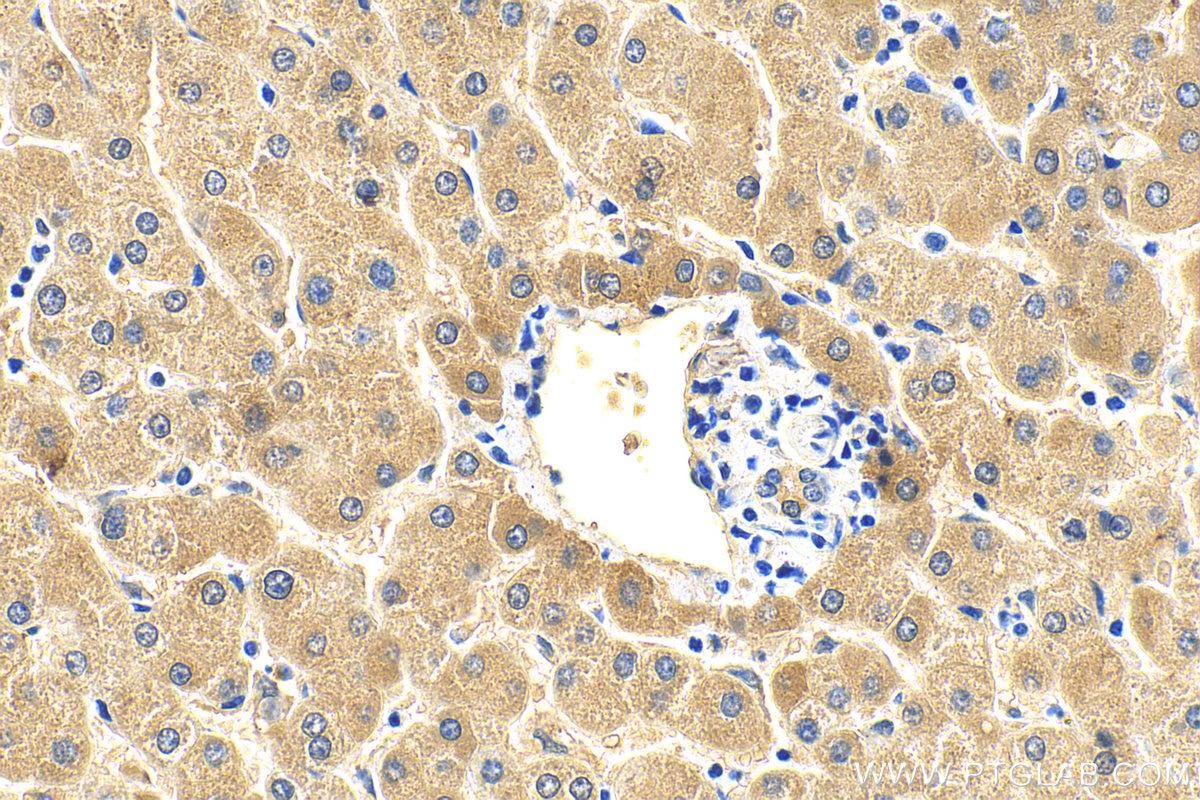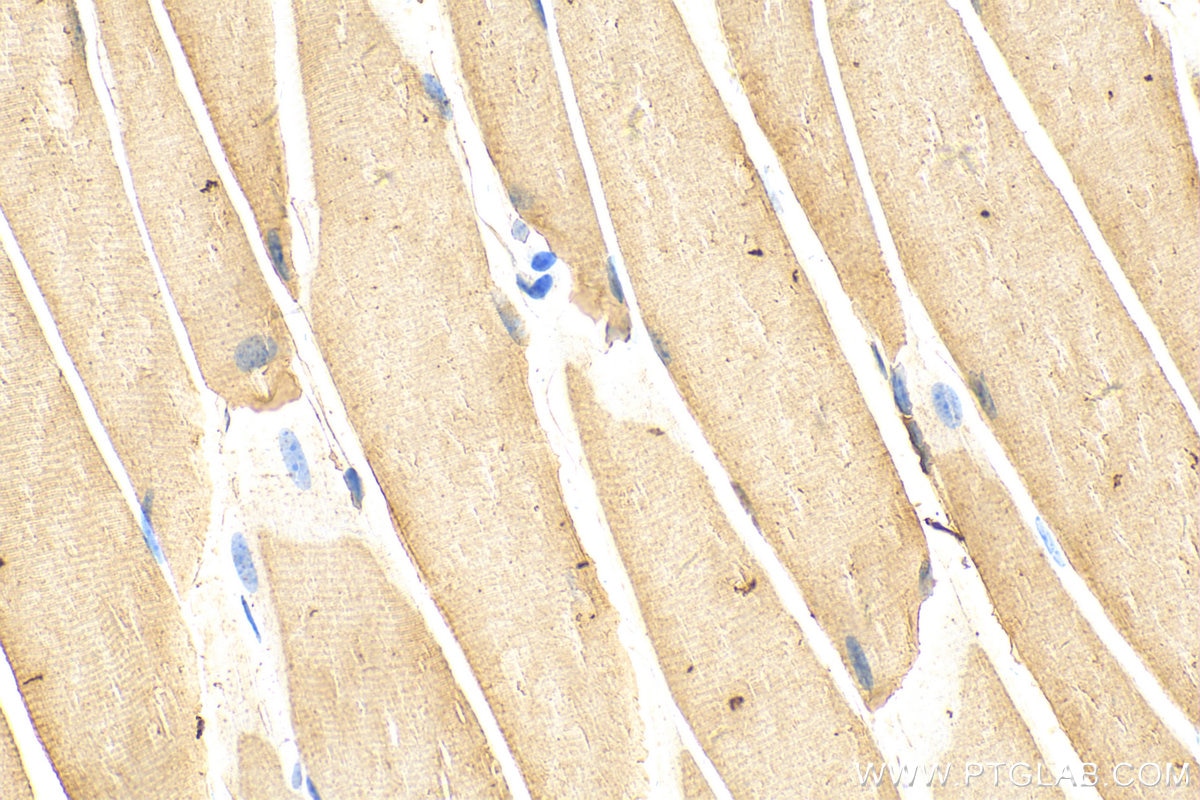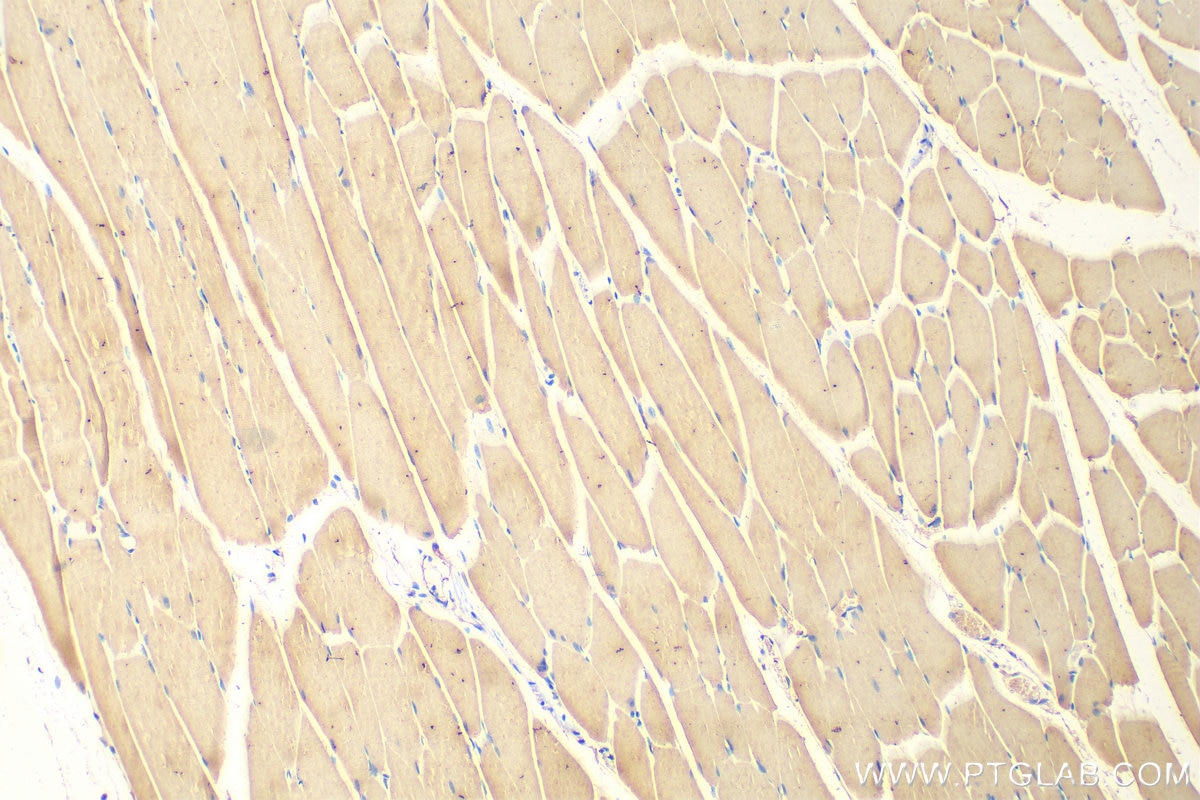Anticorps Monoclonal anti-ULK1
ULK1 Monoclonal Antibody for WB, IHC, ELISA
Hôte / Isotype
Mouse / IgG1
Réactivité testée
Humain, rat, souris
Applications
WB, IHC, ELISA
Conjugaison
Non conjugué
CloneNo.
1D7G1
N° de cat : 68445-1-Ig
Synonymes
Galerie de données de validation
Applications testées
| Résultats positifs en WB | cellules A549, cellules HeLa, cellules Jurkat, cellules LNCaP, cellules NIH/3T3, cellules PC-12, cellules PC-3, cellules T-47D |
| Résultats positifs en IHC | tissu hépatique humain, tissu de muscle squelettique de souris il est suggéré de démasquer l'antigène avec un tampon de TE buffer pH 9.0; (*) À défaut, 'le démasquage de l'antigène peut être 'effectué avec un tampon citrate pH 6,0. |
Dilution recommandée
| Application | Dilution |
|---|---|
| Western Blot (WB) | WB : 1:5000-1:50000 |
| Immunohistochimie (IHC) | IHC : 1:50-1:500 |
| It is recommended that this reagent should be titrated in each testing system to obtain optimal results. | |
| Sample-dependent, check data in validation data gallery | |
Applications publiées
| WB | See 6 publications below |
Informations sur le produit
68445-1-Ig cible ULK1 dans les applications de WB, IHC, ELISA et montre une réactivité avec des échantillons Humain, rat, souris
| Réactivité | Humain, rat, souris |
| Réactivité citée | Humain, souris |
| Hôte / Isotype | Mouse / IgG1 |
| Clonalité | Monoclonal |
| Type | Anticorps |
| Immunogène | ULK1 Protéine recombinante Ag22397 |
| Nom complet | unc-51-like kinase 1 (C. elegans) |
| Poids moléculaire observé | 130-150 kDa |
| Numéro d’acquisition GenBank | NM_003565 |
| Symbole du gène | ULK1 |
| Identification du gène (NCBI) | 8408 |
| Conjugaison | Non conjugué |
| Forme | Liquide |
| Méthode de purification | Purification par protéine G |
| Tampon de stockage | PBS with 0.02% sodium azide and 50% glycerol |
| Conditions de stockage | Stocker à -20°C. Stable pendant un an après l'expédition. L'aliquotage n'est pas nécessaire pour le stockage à -20oC Les 20ul contiennent 0,1% de BSA. |
Informations générales
ULK1, also named as KIAA0722, belongs to the protein kinase superfamily, Ser/Thr protein kinase family and APG1/unc-51/ULK1 subfamily. It is involved in autophagy. ULK1 is required for autophagosome formation. It forms a stable complex with Atg13 and focal adhesion kinase (FAK) family interacting protein of 200 kDa (FIP 200)(PMID:21460634). ULK1 phosphorylates ATG13/KIAA0652. It is involved in axon growth. ULK1 plays an essential role in neurite extension of cerebellar granule cells. ULK1 represents a potential novel prognostic biomarker for HCC patients and may play an important role during the progression of HCC(PMID:23573318).
Protocole
| Product Specific Protocols | |
|---|---|
| WB protocol for ULK1 antibody 68445-1-Ig | Download protocol |
| IHC protocol for ULK1 antibody 68445-1-Ig | Download protocol |
| Standard Protocols | |
|---|---|
| Click here to view our Standard Protocols |
Publications
| Species | Application | Title |
|---|---|---|
Am J Physiol Cell Physiol ITGA3 participates in the pathogenesis of recurrent spontaneous abortion by downregulating ULK1-mediated autophagy to inhibiting trophoblast function | ||
Nat Nanotechnol Autophagosomes coated in situ with nanodots act as personalized cancer vaccines | ||
J Agric Food Chem Lactobacillus plantarum SMUM211204 Exopolysaccharides Have Tumor-Suppressive Effects on Colorectal Cancer by Regulating Autophagy via the mTOR Pathway | ||
iScience Aberrant STING activation promotes macrophage senescence by suppressing autophagy in vascular aging from diabetes | ||
Sci Rep Punicalagin relieves hepatic injury by antioxidation and enhancement of autophagy in diet-induced nonalcoholic steatohepatitis | ||
ACS Infect Dis Pec 1 of Pseudomonas aeruginosa Inhibits Bacterial Clearance of Host by Blocking Autophagy in Macrophages |
